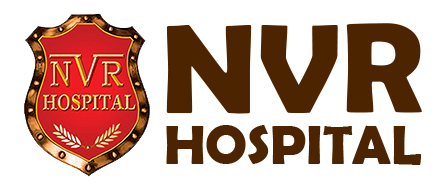Cardiovascular Disorders
What are Cardiovascular Disorders?
Cardiovascular disorders (CVDs) refer to a group of diseases that affect the heart and blood vessels, significantly impacting the circulatory system. These disorders are a leading cause of mortality worldwide, requiring early diagnosis and effective management to reduce health risks
Types of Cardiovascular Disorders
Coronary Artery Disease (CAD)
CAD is caused by the narrowing or blockage of coronary arteries due to atherosclerosis, restricting blood flow to the heart. Symptoms often include chest pain (angina), shortness of breath, and fatigue
Hypertension (High Blood Pressure)
Known as the "silent killer," hypertension occurs when blood pressure levels remain consistently high, increasing the risk of heart attack, stroke, and other complications
Arrhythmias
Arrhythmias are irregular heartbeats caused by issues in the heart's electrical system. Common types include tachycardia (fast heartbeat) and bradycardia (slow heartbeat)
Heart Failure
Heart failure occurs when the heart cannot pump blood efficiently to meet the body's needs. It can be caused by other cardiovascular conditions like CAD or high blood pressure
Peripheral Artery Disease (PAD)
PAD results from narrowed arteries reducing blood flow to the limbs, leading to pain, numbness, and other complications
Causes of Cardiovascular Disorders
- Lifestyle Factors: Poor diet, lack of physical activity, smoking, and excessive alcohol consumption
- Genetics: Family history of heart disease increases susceptibility
- Chronic Conditions: Diabetes, obesity, and high cholesterol levels contribute significantly
Symptoms of Cardiovascular Disorders
- Chest pain or discomfort
- Shortness of breath
- Dizziness or fainting
- Swelling in legs, ankles, or feet
- Palpitations or irregular heartbeat
Prevention and Management
- Healthy Lifestyle: Adopting a balanced diet, exercising regularly, and avoiding smoking
- Regular Check-ups: Monitoring blood pressure, cholesterol, and glucose levels
- Medications: Prescribed drugs like statins or antihypertensives to manage risk factors
- Medical Interventions: In severe cases, procedures like angioplasty or bypass surgery may be required
Cardiovascular disorders are a significant health concern, but many are preventable or manageable with timely intervention. Understanding the risk factors and symptoms is key to improving heart health and reducing complications
For any inquiries, please contact our hospital for assistance and care.
